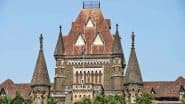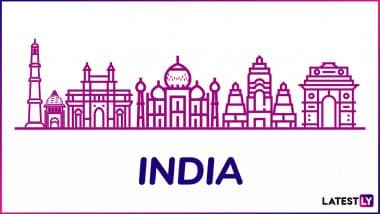By Priyanka SharmaNew Delhi [India], Aug 14 (ANI): Roughly 5 lakh people die annually in India due to lack of an organ donor but with less than one per million people opting to donate, the organ donation rate in the country is one of the lowest in the world, according to estimates."On an average, half a million people are dying for the want of organs every year as there is an extreme shortage of organ donation to the patients when they are declared end-stage organ failure," Dr H. Jauhari, Chairman Renal Transplant Division, Sir Ganga Ram Hospital and member of National Organ Tissue Transplant Organisation (NOTTO) told ANI on the World Organ Donation Day on Tuesday.Even when a patient is brain dead he or she is capable of saving six lives since a deceased person can donate heart, lungs, kidneys, pancreas, liver, and intestine including tissues like corneas, tissue and skin."On an average, half a million people are dying for the want of organs every year as there is an extreme shortage of organ donations to patients when they are declared end-stage organ failure," Dr Jauhari said.Out of this number, two lakh people reach the stage of kidney failure every year on an average, Dr Jauhari stated."About 30,000 to 40,000 patients suffer heart failure and similarly 50,000 to 60,000 patients need a liver transplant. At a given time, there are 10 lakh people who are cornea blind. Thus, non- communicable disease are the main reasons for it. So the requirement (for organs) is huge and it is increasing day by day," the senior doctor said.NOTTO is a national level organisation set up under Directorate General of Health Services, Ministry of Health and Family Welfare. It monitors the organ donation activities in India and has the following divisions - National Human Organ and Tissue Removal and Storage Network, and National Biomaterial Centre.Even though India has the largest population in the world, the ratio of organ donation stands less than one per million population while Spain is at the top with 50 per million population, Dr Vasanthi Ramesh, the Director of NOTTO earlier said.Dr Anup Kumar, head of urology and renal transplant department at Safdarjung Hospital said: "People's participation on organ donation in the country is very poor. A few years back, India had 0.2 per million population of cadaver donation which has come closer to 1 per million population. Health Ministry's plan is to bring it to 0.5 per million population in the next five years."Pointing out the increasing number of scams and black marketing in connection with organ transplants, Dr Kumar said: "If we want to control scams and illegal activities, the government should pay more emphasis on the promotion on cadaver organ donation. Patient easily gets live donors but when it comes to unrelated "unrelated donors" chances of illegal activities are higher.""In India, at least two lakh people require kidney transplant every year, however, only 10,000 patients get the donors while others survive on dialysis and even die due to lack of donors," he said.Doctors in states like Tamil Nadu, Maharashtra and Pune are doing good in organ transplant programmes while North India including Delhi is still lacking behind with poor rate of organ donation.(Prof) Dr Arti Vij, Chairperson of Organ Retrieval Banking Organisation (ORBO) told ANI: "Definitely awareness has increased over the years but numbers of cadaver organ donation is still very low. In India, the major challenge is acceptance of brain dead among family members. So a key role is played by transplant cordinators and doctors is to counsel relatives and family. AIIMS is making all efforts to sensitise school and college students, RWAs, government bodies and religious organisations.""At AIIMS, we have started training all our resident doctors and nurses to issue of organ transplant programmes. We have a well-managed system of ORBO helpline number monitored by trained Coordinator and nurses to deal with queries related to organ donation." (ANI)
(The above story is verified and authored by ANI staff, ANI is South Asia's leading multimedia news agency with over 100 bureaus in India, South Asia and across the globe. ANI brings the latest news on Politics and Current Affairs in India & around the World, Sports, Health, Fitness, Entertainment, & News. The views appearing in the above post do not reflect the opinions of LatestLY)













 Quickly
Quickly


